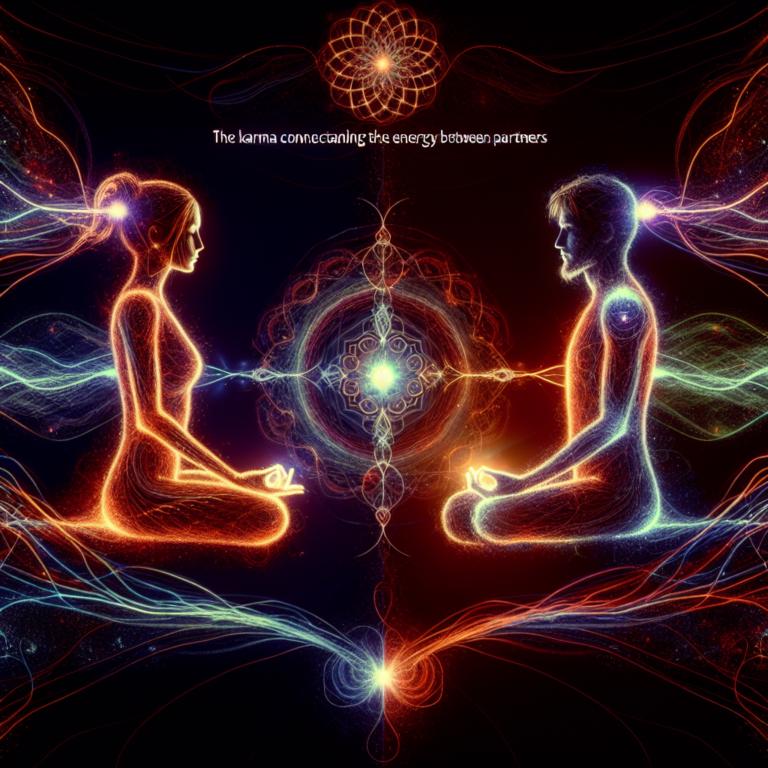Karma is a concept that pervades various cultures and beliefs. Often misunderstood, it is frequently represented in either an overly simplistic or a vastly complex manner. This article aims to elucidate the top ten myths surrounding karma, offering a clearer understanding of what karma truly signifies and how it affects our lives.
Myth 1: Karma Is a Punishment System
One of the most common misconceptions about karma is that it functions as a punitive system. Many people believe that karma punishes wrongdoers in this lifetime or the next. However, this interpretation oversimplifies a complex philosophical idea. Instead of focusing solely on punishment, karma embodies the principle of cause and effect.
Every action has corresponding consequences, but these are not necessarily punitive. Instead, karma can be seen as a natural consequence of our actions, encouraging personal responsibility. The key lies in the individual’s growth from experiences rather than a system of retribution.
Key Takeaway
Karma encourages self-reflection and growth rather than serving as a system of punishment.
Myth 2: Karma Means “What Goes Around Comes Around”
The phrase “what goes around comes around” is often cited as the essence of karma. While this saying captures a part of the idea, it’s more nuanced than a simple equation. Karma involves a cycle of actions, reactions, and learning experiences rather than a direct tit-for-tat mechanism.
In reality, actions lead to consequences that can unfold across different timescales. Someone may act with goodwill and not see immediate positive results. Conversely, a selfish act might not yield immediate repercussions. Over time, actions shape an individual’s character and life experiences according to their intentions and efforts.
Key Takeaway
Karma is a nuanced process that encompasses more than immediate consequences; it extends over time and influences personal growth.
Myth 3: Karma Only Affects Others, Not Me
Many people believe that karma only affects others and that good deeds go unchecked in their own lives. This perspective neglects the principle that we all are interconnected and that every action has repercussions for ourselves as well. When we act with kindness and positivity, we cultivate a positive environment for ourselves.
Conversely, when we choose negative actions or thoughts, it impacts our mental and emotional well-being. The reality is that karma operates at an individual level—how we treat others ultimately shapes our circumstances and experiences.
Key Takeaway
Karma is personal; how we act and think directly shapes our life experiences.
Myth 4: Karma Is a Religious Concept
While karma is often associated with Eastern religions such as Hinduism and Buddhism, it is not confined to a particular faith. Many cultures across the globe embrace a form of the karmic principle, emphasizing moral cause and effect irrespective of religious doctrine.
Understanding karma can enhance spiritual beliefs across various traditions, but it is not limited to a single framework. Many secular philosophies also espouse the karmic principle of actions leading to consequences, allowing a broader application of karma in daily life.
Key Takeaway
Karma transcends religious boundaries and can be found in many spiritual and secular philosophies.
Myth 5: Positive Thinking Equals Good Karma
While positive thinking can certainly uplift your mood and lead to brighter outcomes, the notion that simply thinking positively guarantees good karma is misleading. Karma is primarily about actions. Mere thoughts without corresponding positive actions may lead to a disconnect between intention and outcome.
To create good karma, one needs to engage in positive actions, as well as nurturing positive thoughts. It’s the combination of intention, thoughts, and actions that nourishes the cycle of karma.
Key Takeaway
Good karma results from both positive thoughts and positive actions, not thoughts alone.
Myth 6: You Have to Wait for Karma to Take Effect
Another myth about karma is the belief that it operates on a delayed timeline, implying that consequences will eventually catch up with individuals. While it is true that some karmic effects unfold over time, many times we experience immediate feedback for our actions, both positive and negative.
When we act positively, we often see rewards, such as strengthened relationships or wholesome experiences. The same applies to negative actions, which may lead to immediate tensions or conflicts. Thus, the consequences of actions can ripple through our lives much quicker than many believe.
Key Takeaway
Karma can manifest in both immediate and delayed consequences; awareness of our actions is essential.
Myth 7: Karma Is Deterministic
Some individuals interpret karma as a deterministic force, meaning that it predestines one’s life based on prior actions. This notion implies a lack of free will and personal agency. In truth, karma acknowledges the interplay between action and intention but does not dictate a definitive path for individuals.
Karma provides a framework for understanding consequences, but it does not remove the individual’s ability to choose actions moving forward. Individuals can shape their future by subtly altering their behaviors and intentions based on past experiences and karmic lessons.
Key Takeaway
Karma does not strip away free will; it serves as a guide for personal growth and choices.
Myth 8: You Only Accumulate Karma in This Lifetime
Many people assume that karma is only applicable within a single lifetime, overlooking the idea that karmic effects can transcend multiple lifetimes, especially in traditions that support reincarnation. According to this belief, unresolved karma can carry over, influencing future experiences and relationships.
This perspective adds depth to the understanding of karmic relationships and experiences, suggesting that actions made in past lives can influence an individual’s current reality. However, a person has the ability to reset their karmic path at any point through conscious actions and decisions.
Key Takeaway
Karma can transcend lifetimes, influencing current actions and future experiences.
Myth 9: Good Deeds Guarantee Good Karma
While performing good deeds is essential for cultivating positive karma, the essential aspect is the intention behind those actions. If good deeds are performed with a sense of obligation, or for ulterior motives, the karmic effect may not reflect the intended positivity.
It is the purity of intention—genuinely wishing well for others and acting for collective good—that significantly enhances the positive repercussions of one’s actions. Mindfulness in both thoughts and deeds is essential to cultivating true good karma.
Key Takeaway
Pure intentions behind actions are crucial for generating positive karma; actions alone are insufficient.
Myth 10: Karma Is a Universal Law
Although karma holds significance in many cultures and philosophies, it is essential to understand that it is more a principle of moral cause and effect than an absolute law. Not everyone subscribes to the idea of karma, and interpretations of karmic consequences can vary greatly among different traditions.
This subjectivity means that what one person considers karmic justice might appear differently to another. Therefore, while karma can serve as a useful guideline for personal conduct, it is not universally perceived or experienced.
Key Takeaway
Karma is a guiding principle, not an absolute law; it varies in interpretation and significance across cultures.
Conclusion
Understanding karma requires embracing the complexity of human actions and their consequences. By debunking these top ten myths about karma, we illuminate the path towards a more profound comprehension of how our actions shape not only our environments but also our inner selves.
Karma is not a mere retributive force; it fosters self-accountability, personal development, and a heart-centered life approach. Recognizing the principles of karma empowers individuals to cultivate positivity and interconnectedness in their lives.
FAQs About Karma
1. What is the origin of the concept of karma?
The concept of karma originates primarily from Hindu philosophy, where it is intricately linked to reincarnation and the law of cause and effect. Buddhism and Jainism also incorporate karmic principles, each with its unique interpretations.
2. Can I change my karma?
Yes, individuals have the power to change their karma through conscious actions and intentions. By making deliberate choices that align with positive outcomes and self-improvement, one can create new karmic patterns.
3. Is karma the same as fate?
No, karma and fate are different concepts. Karma points to the effects of our actions while fate suggests a predetermined path. Karma allows for free will and the ability to influence one’s future through choices.
4. Does karma only apply to actions, or do thoughts play a role?
Both actions and thoughts play significant roles in karma. It is the intention behind actions and the nature of thoughts that create karmic consequences. Positive intentions lead to positive outcomes, while negative intentions can foster negative repercussions.
5. How can I create good karma in my life?
Creating good karma involves engaging in positive actions, cultivating kind intentions, and fostering compassion towards others. Practicing mindfulness and self-awareness also helps align actions with a karmically beneficial path.
It seems like you provided only the word “Prompt.” Could you please elaborate on what specific information or task you would like help with? Whether it’s writing, brainstorming ideas, or answering questions, I’m here to assist!, #Debunking #Top #Myths #Karma, #Debunking #Top #Myths #Karma, 1734917218, debunking-the-top-10-myths-about-karma





